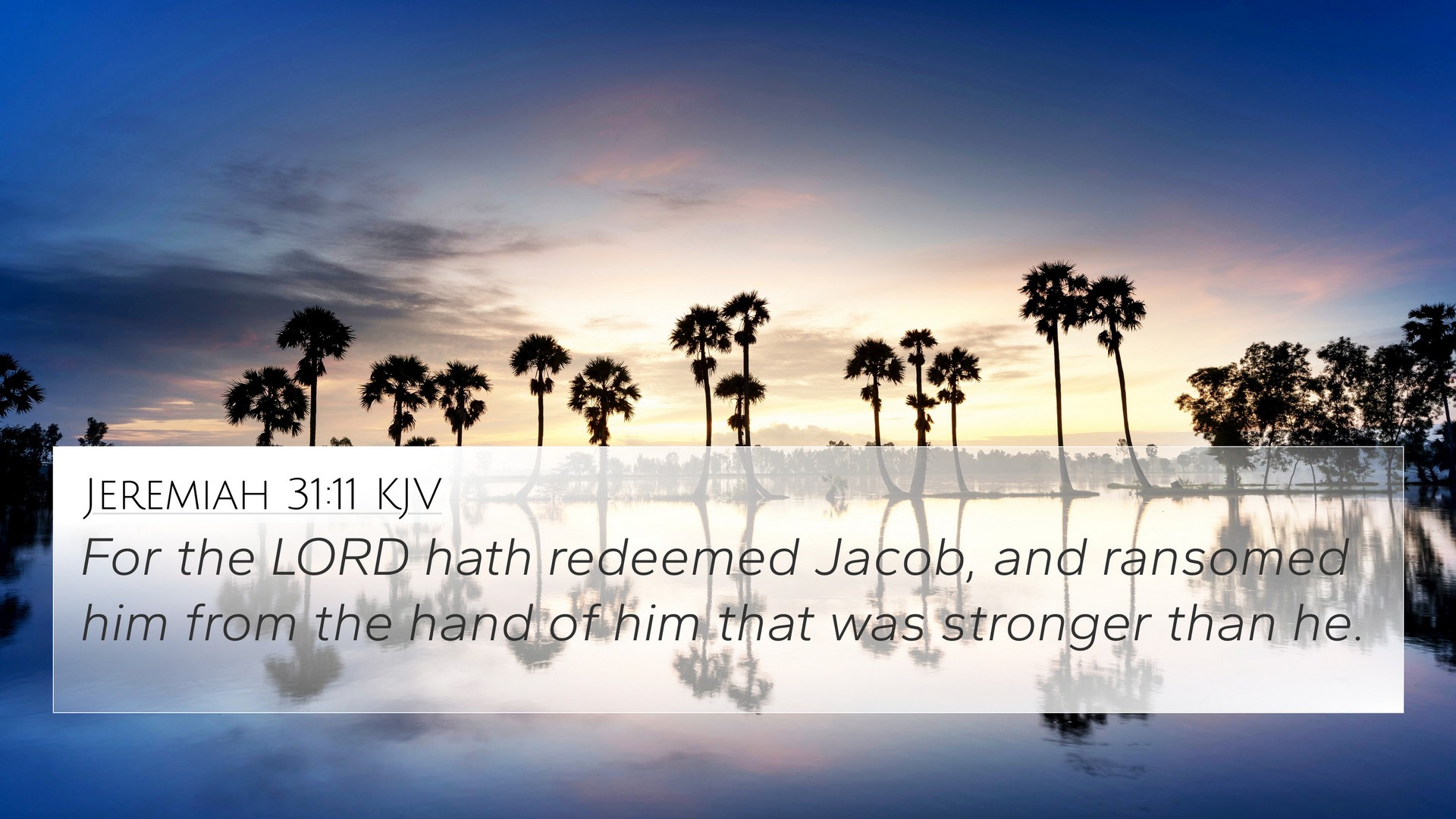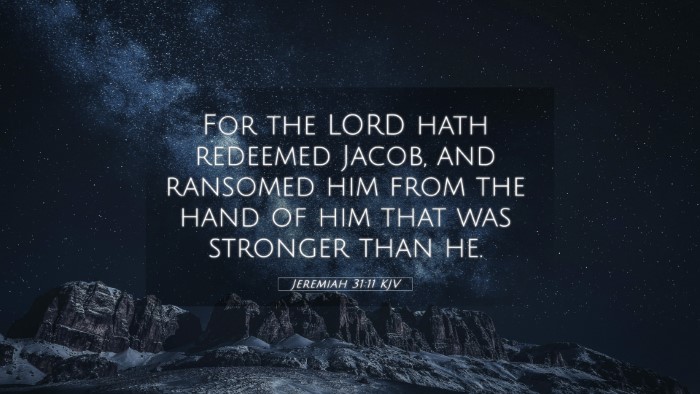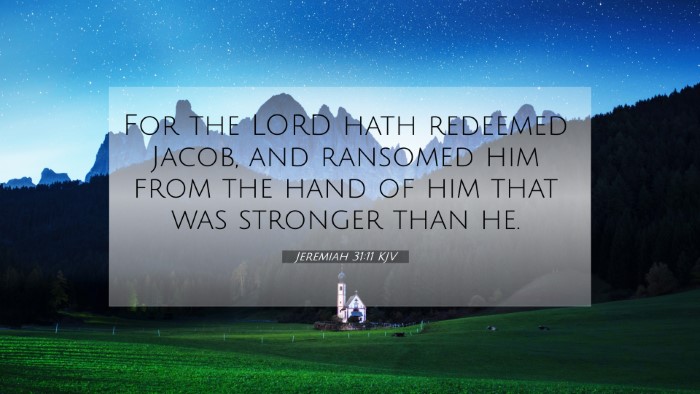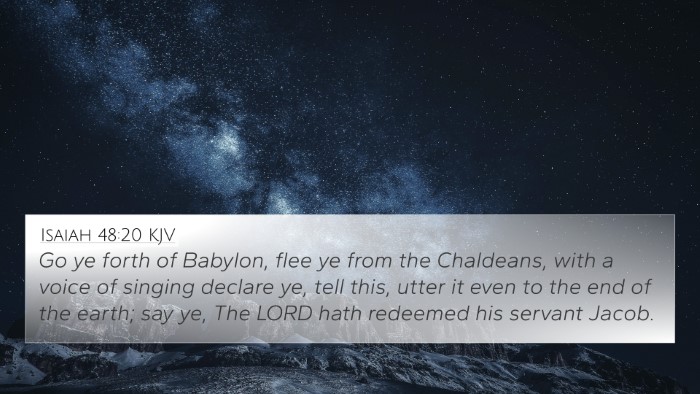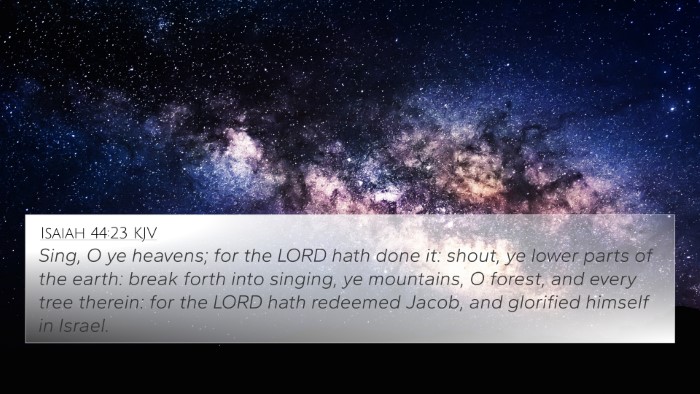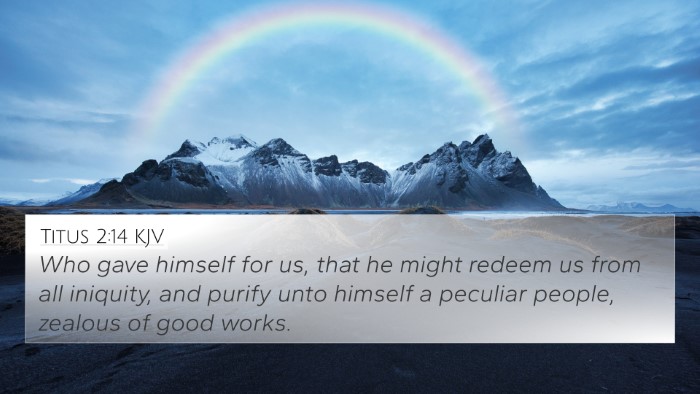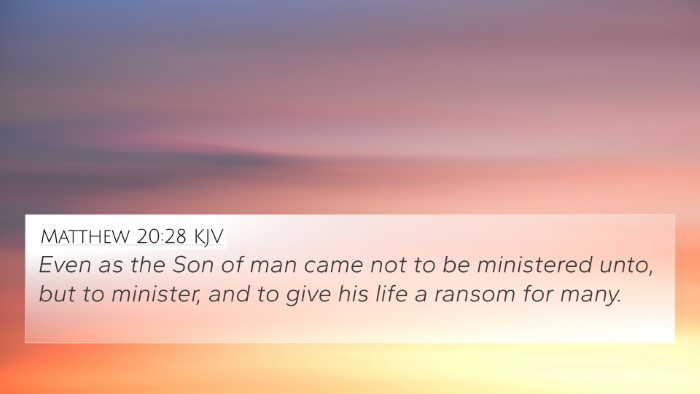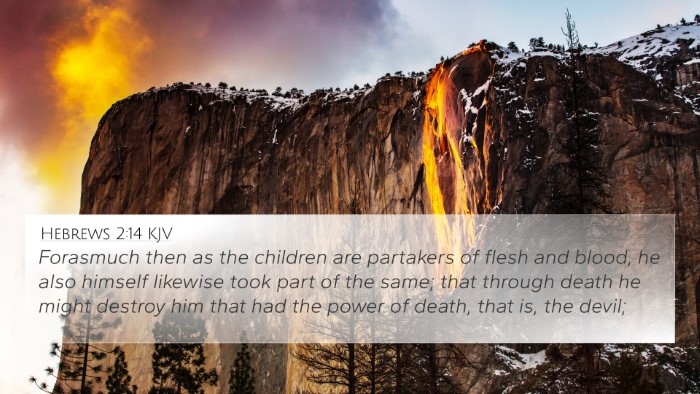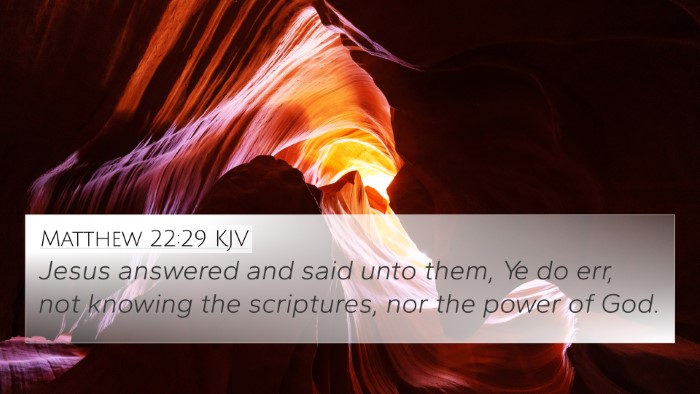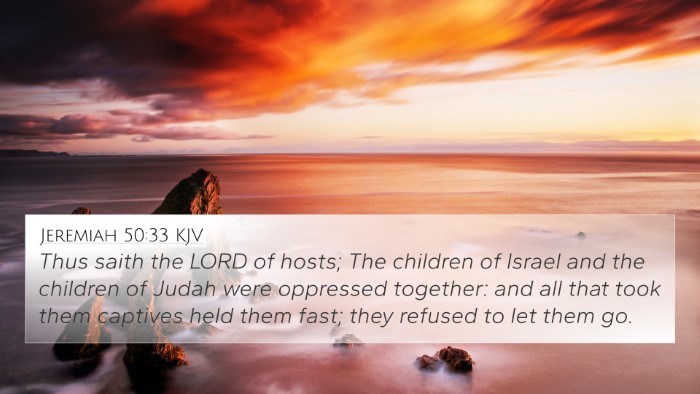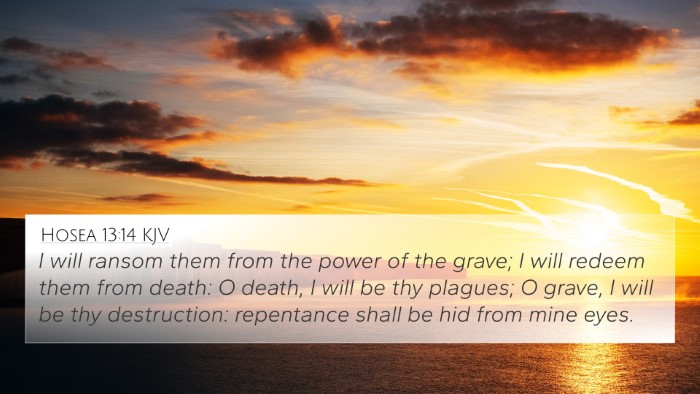Understanding Jeremiah 31:11
Jeremiah 31:11 states, "For the LORD has redeemed Jacob and ransomed him from the hand of one stronger than he."
This verse encapsulates the themes of redemption and deliverance. It highlights God's commitment to restoring His people, indicating a profound concern for their welfare. In the historical context, Jeremiah was addressing the exiled Israelites, assuring them of God's eventual salvation and restoration. Through the insights from various public domain commentaries, we can gain a deeper understanding of this message.
Commentary Insights
Matthew Henry's Commentary
Matthew Henry describes the verse as a mixture of past and future promise. He emphasizes the importance of God’s redemptive power in liberating Israel from their captors. Henry notes that the "stronger" foe symbolizes not just physical adversaries but spiritual oppressors, asserting that God’s strength surpasses all.
Albert Barnes' Notes
Albert Barnes elaborates on the idea of ransom. He notes that the term implies a restoration to freedom through payment, which reflects God's grace and mercy towards His people. He connects this with the messianic hope, seeing in this verse a foreshadowing of Christ's ultimate redemption for humanity.
Adam Clarke's Commentary
Adam Clarke interprets this verse as an assurance of God’s love woven through Israel’s trials. He explains that the prophetic voice reassures the people during their darkest moments, promising that God has not forgotten them, and is willing to redeem them completely from their distress.
Bible Cross References
This verse is interconnected with several other scriptures, illustrating the commonly recurring themes. Below are key cross references that highlight the connections:
- Isaiah 43:1 - "But now, thus says the LORD, he who created you, O Jacob, he who formed you, O Israel: 'Fear not, for I have redeemed you; I have called you by name, you are mine.'"
- Psalm 107:2 - "Let the redeemed of the LORD say so, whom he has redeemed from trouble."
- Luke 1:68 - "Blessed be the Lord God of Israel, for he has visited and redeemed his people."
- Galatians 4:5 - "To redeem those who were under the law, so that we might receive adoption as sons."
- Matthew 20:28 - "Even as the Son of Man came not to be served but to serve, and to give his life as a ransom for many."
- Ephesians 1:7 - "In him we have redemption through his blood, the forgiveness of our trespasses, according to the riches of his grace."
- Romans 8:32 - "He who did not spare his own Son but gave him up for us all, how will he not also with him graciously give us all things?"
Thematic Connections
The themes of redemption and divine providence in Jeremiah 31:11 echo throughout the Scriptures. This verse is part of the larger narrative of God's covenant with Israel, illustrating His unyielding faithfulness despite their failings. Through cross-referencing Bible verses, we can observe this narrative’s consistency from the Old Testament through to the New Testament.
Using Bible Cross-References
Tools for Bible cross-referencing are essential for those seeking to dive deeper into understanding Scripture. A Bible concordance or a cross-reference Bible study guide can help readers identify connections between verses and understand theological implications more clearly.
Why Cross-Referencing Matters
Cross-referencing aids in drawing connections within the text, enabling a comprehensive examination of related themes. It allows believers and scholars to see the continuity in God's message across different contexts and covenants. For instance, understanding Jeremiah 31:11 alongside New Testament verses enhances our grasp of the fullness of God's redemptive plan through Christ.
Conclusion
Jeremiah 31:11 serves as a powerful reminder of God's unwavering commitment to His people, promising redemption and restoration. By employing Bible cross-referencing techniques, one can uncover rich connections between scripture, facilitating a deeper understanding of faith and theology. As we reflect on these insights, let us embrace the assurance that God continually redeems and restores those He loves.
